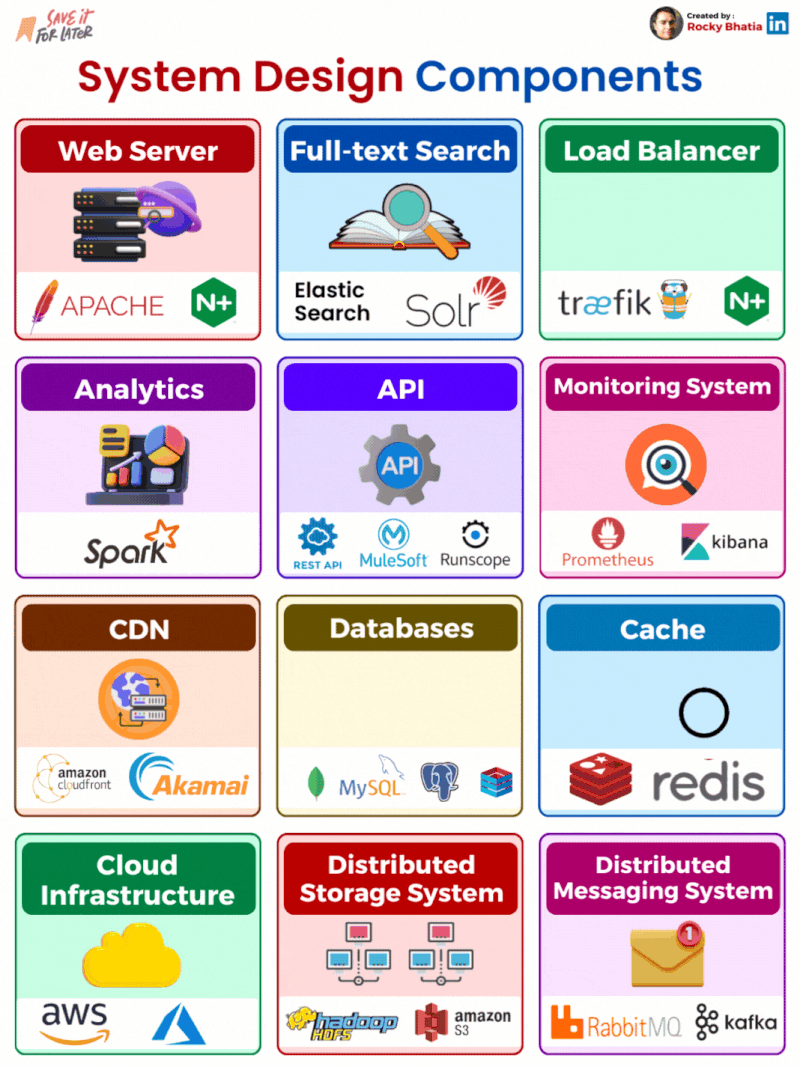
System design components are the building blocks that make up a system. They can be hardware, software, or a combination of both.
Some common system design components include:
- Servers: Servers are responsible for hosting and delivering applications and services.
- Databases: Databases store and manage data.
- Networks: Networks connect servers and other devices so that they can communicate with each other.
- Storage: Storage devices store data, such as files and databases.
- Security: Security components protect systems from unauthorized access and attack.
In addition to these basic components, system design may also include other components such as:
- Load balancers: Load balancers distribute traffic across multiple servers to improve performance and reliability.
- API gateways: API gateways provide a single point of entry for API requests and can provide features such as authentication, authorization, and caching.
- Microservices: Microservices are small, self-contained services that can be combined to form a larger system.
- Containers: Containers package applications and their dependencies so that they can be deployed and run on any platform.
The specific components that are used in a system design will depend on the specific needs of the system. For example, a simple website may only need a server, a database, and a network. A more complex system, such as an e-commerce website, may need additional components such as a load balancer, an API gateway, and microservices.
When designing a system, it is important to consider the following factors:
- Performance: The system should be able to handle the expected load without impacting performance.
- Scalability: The system should be able to scale up or down as needed.
- Reliability: The system should be reliable and available to users when needed.
- Security: The system should be secure from unauthorized access and attack.
- Cost: The system should be cost-effective to build and operate.
I’m a DevOps/SRE/DevSecOps/Cloud Expert passionate about sharing knowledge and experiences. I am working at Cotocus. I blog tech insights at DevOps School, travel stories at Holiday Landmark, stock market tips at Stocks Mantra, health and fitness guidance at My Medic Plus, product reviews at I reviewed , and SEO strategies at Wizbrand.
Please find my social handles as below;
Rajesh Kumar Personal Website
Rajesh Kumar at YOUTUBE
Rajesh Kumar at INSTAGRAM
Rajesh Kumar at X
Rajesh Kumar at FACEBOOK
Rajesh Kumar at LINKEDIN
Rajesh Kumar at PINTEREST
Rajesh Kumar at QUORA
Rajesh Kumar at WIZBRAND

 Starting: 1st of Every Month
Starting: 1st of Every Month  +91 8409492687
+91 8409492687  Contact@DevOpsSchool.com
Contact@DevOpsSchool.com
